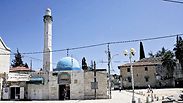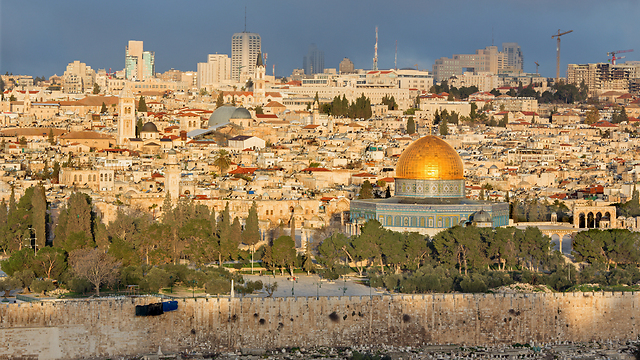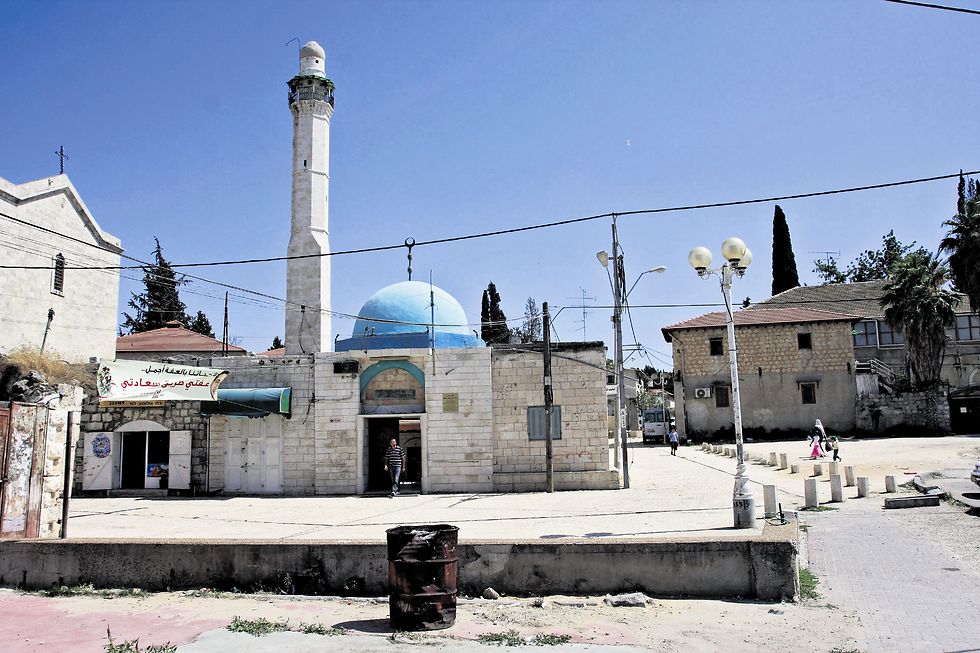
Ministers approve bill to limit muezzin noise
The Ministerial Committee for Legislation approves proposed bill after discussing the ongoing issue of excessive noise in the early hours which both government ministers and PM Netanyahu say ‘disturbs Jewish, Muslims and Christians'; some MKs oppose move, denounce it as ‘anti-Semitic.’
The Ministerial Committee for Legislation approved a bill Sunday evening to ban mosque muezzins from announcing prayer times via loudspeakers in the streets.
The bill, tabled by MK Motti Yogev (Bayit Yehudi) and Robert Ilatov (Yisrael Beytenu), comes a week and a half after demonstrations were staged by residents of the eastern Jerusalem neighborhood of Pisgat Ze'ev who emulated a muezzin call in front of the Beit Hakerem residence of Jerusalem Mayor Nir Barkat to protest ongoing disturbances caused by Muslim calls to prayer emanating from the Shuafat, Beit Hanina and A-ram neighborhoods.
Yogev said the early-morning calls to prayer, mainly from mosques, disturb the sleep of hundreds of thousands of Jews and Arabs alike.
In his opening statements during Sunday’s ministerial meeting, Prime Minister Benjamin Netanyahu also voiced his broad agreement with the complaints of the residents in which the calls to prayer are blasted.
“The Ministerial Committee for Legislation will discuss discuss a proposed bill today to restrict the noise level of the public address system of houses of worship in Israel,” he said.” “Both Muslims, Jews and Christians suffer from this. I cannot count the number of times that civilians have approached me from all strands of Israeli society who complain about the choice and the suffering which is caused by the excessive noise from houses of worship.”
According to Yogev, his office, as well as the ministries of public security and environment, have received dozens of complaints which emphasize that they have no problem with daytime calls to prayer object to the disruptive early broadcasts.
“We are not opposed to religious observance, and certainly not to the call of the muezzin that ‘God is great’,” said Yogev. “(Religious Jews have been) reciting a similar phrase for thousands of years, long before the emergence of Islam.
“But with all the technological advances of today, there is no justification for waking people up at 4 o’clock in the morning who don’t want (to attend prayer services). There are cell phone applications, alarm clocks, and other technologies to use. There is no need to wake up the whole neighborhood,” Yogev told the Hebrew-language Channel 1’s education program.
Members of Israel’s Arab community were quick to criticize the bill with MK Issawi Freij (Meretz) calling the move “anti-Semitic” and claiming that it was not motivated by noise concerns, but rather an ongoing anti-Muslim sentiment that has become popular in the current coalition.

Dr. Thabet Abu Rass, co-chairman of The Abraham Fund Initiative, also opposed the bill but appeared to accept Yogev’s claim that the loudspeakers are disruptive and unfair. Nevertheless, he cited the mixed Arab-Jewish city of Jaffa as a precedent for dialogue being the way to address the issue, rather than unilateral legislation.
“Nobody legislated the issue in Jaffa, but somehow the local residents managed to work it out on their own, through dialogue,” Abu Rass said.
Yogev rejected the claims out of hand however, saying that the new proposal is necessary since existing laws to limit noise pollution have simply not been enforced. He also rejected accusations that the Bayit Yehudi party was “against” public expressions of Islam, saying that broadcasting the call to prayer is not part of the Muslim religion.
“One hundred years ago there were no loudspeakers,” Yogev said. “So what did the muezzins do at that time?”
Article reprinted with permission from TPS.











